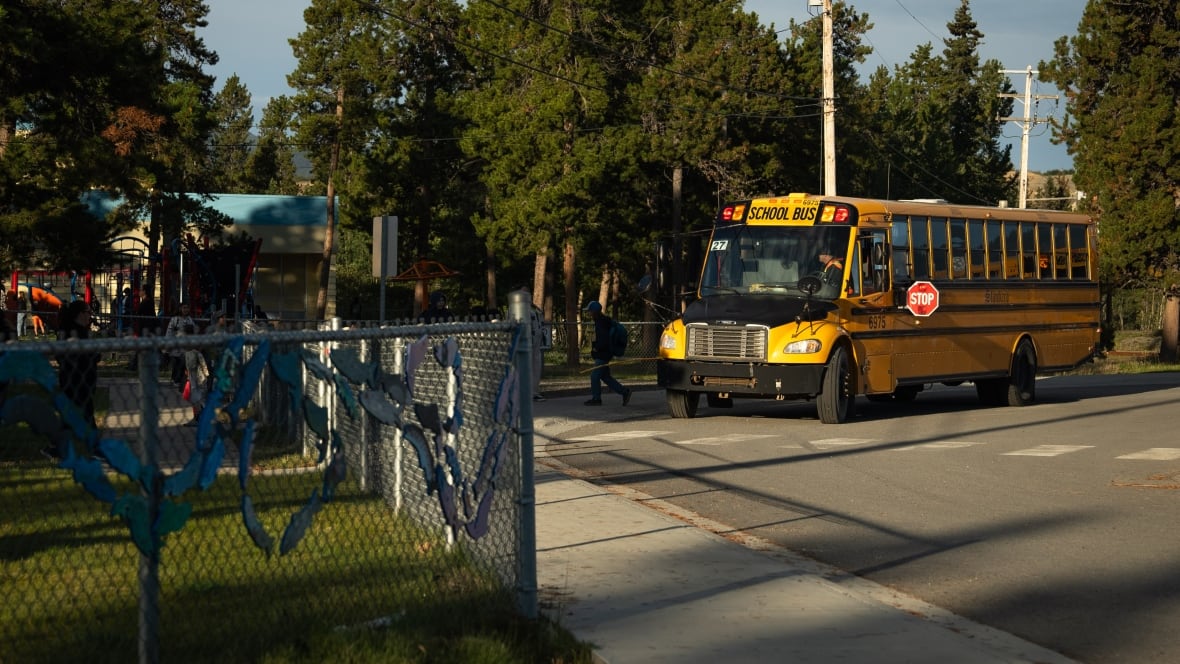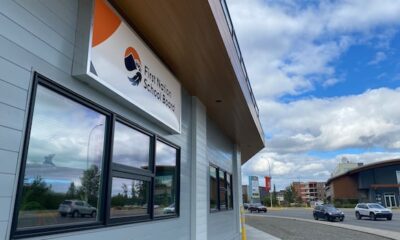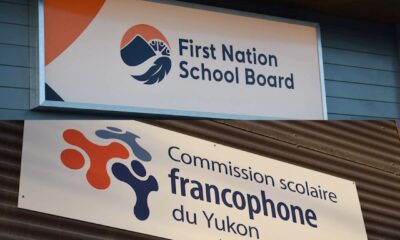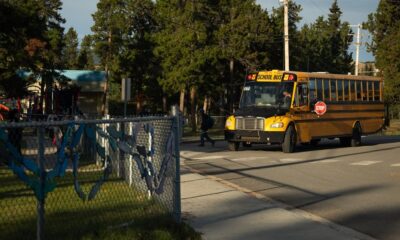Education
Yukon Schools Welcome Students, Yet Teacher Vacancies Remain

Yukon students returned to classes this week, but the region faces ongoing challenges in filling teacher vacancies. Both the First Nation School Board (FNSB) and the Yukon Department of Education reported a need for additional staff despite fewer vacancies compared to previous years. As of August 1, 2023, the territory’s French language school board successfully filled all its teaching positions.
Dana Tizya-Tramm, chair of the FNSB, indicated that the board requires approximately eight more teachers to adequately support its educational needs. Similarly, Christine Franes, superintendent of elementary schools for the Yukon government, stated an additional 11 teachers are needed in their schools. Tizya-Tramm noted that while the FNSB has filled all positions allocated by the Yukon government, it seeks to enhance support for all students by hiring more staff.
Recruitment Efforts and Challenges
Both educational authorities are ramping up their recruitment strategies this year. Jan Olson, superintendent for K-12 and high schools, explained that the department targeted specific regions and organized career fairs to attract prospective teachers. Tizya-Tramm emphasized the importance of working closely with local communities to determine their unique educational requirements.
The FNSB manages a total of 11 schools, while the Yukon education department oversees 21. The latter also provides substitute teachers for all schools in Whitehorse, including the two managed by the FNSB. Currently, the FNSB has 29 teachers on call, a record number since its establishment, while Olson confirmed the education department has over 200 teachers available for substitute roles.
The FNSB has successfully filled nine of the 11 language teacher positions, ensuring each school receives the necessary language instruction.
Addressing the Nationwide Teacher Shortage
The ongoing vacancies are symptomatic of a broader “nationwide teacher shortage,” according to Ted Hupé, president of the Yukon Association of Education Professionals. He noted that this year’s improved vacancy figures can be attributed to a new collective agreement established in January, which included salary increases for teachers, educational assistants, and substitute teachers. Hupé pointed out that Yukon educators rank among the top earners in Canada, trailing only Nunavut and the Northwest Territories, yet the region still grapples with a shortage of teaching staff.
Despite the decrease in reported vacancies, Hupé cautioned that the numbers do not fully reflect the reality in classrooms. He explained that one teacher vacancy can impact 20 to 25 students, potentially affecting educational outcomes. Franes mentioned that the education authority can utilize non-enrolling teachers, such as learning assistants, to temporarily fill staffing gaps, but Hupé criticized this approach, arguing it detracts essential support from students who need it most.
He expressed concerns about the accuracy of vacancy reports, highlighting instances where short-term arrangements, such as acting principals, may mask the severity of the staffing crisis.
Housing and Funding Challenges
A significant hurdle in recruiting teachers is the lack of adequate housing, particularly in remote areas. Tizya-Tramm urged the Yukon Housing Corporation to prioritize housing developments for educators. He shared his experience as a former chief of the Vuntut Gwitchin First Nation, stating that during his tenure, no housing was constructed for teachers in Old Crow, highlighting a critical infrastructure gap.
In response, the Yukon Housing Corporation confirmed it collaborates with the Yukon government and the FNSB to address recruitment and retention challenges through its employee housing program. The corporation allocates housing to eligible government employees, including teachers, and has recently opened a 10-plex in Old Crow to support local needs.
In addition to housing, Tizya-Tramm called for increased territorial funding to bolster teacher support. He acknowledged the positive steps taken by the Yukon government in signing the FNSB agreement but emphasized the need for a revised funding formula that has yet to materialize after four years of operation.
In a statement, Laura Seeley from Yukon government cabinet communications affirmed the territory’s commitment to supporting the FNSB and pledged ongoing collaboration on future funding initiatives.
As Yukon schools continue to welcome students, the need for qualified educators remains a pressing issue, one that the local authorities are striving to address through enhanced recruitment efforts and community engagement.
-

 Politics4 weeks ago
Politics4 weeks agoSecwepemc First Nation Seeks Aboriginal Title Over Kamloops Area
-

 World5 months ago
World5 months agoScientists Unearth Ancient Antarctic Ice to Unlock Climate Secrets
-

 Entertainment5 months ago
Entertainment5 months agoTrump and McCormick to Announce $70 Billion Energy Investments
-

 Science5 months ago
Science5 months agoFour Astronauts Return to Earth After International Space Station Mission
-

 Lifestyle5 months ago
Lifestyle5 months agoTransLink Launches Food Truck Program to Boost Revenue in Vancouver
-

 Technology3 months ago
Technology3 months agoApple Notes Enhances Functionality with Markdown Support in macOS 26
-

 Lifestyle3 months ago
Lifestyle3 months agoManitoba’s Burger Champion Shines Again Amid Dining Innovations
-

 Top Stories2 months ago
Top Stories2 months agoUrgent Update: Fatal Crash on Highway 99 Claims Life of Pitt Meadows Man
-

 Politics4 months ago
Politics4 months agoUkrainian Tennis Star Elina Svitolina Faces Death Threats Online
-

 Sports5 months ago
Sports5 months agoSearch Underway for Missing Hunter Amid Hokkaido Bear Emergency
-

 Politics5 months ago
Politics5 months agoCarney Engages First Nations Leaders at Development Law Summit
-

 Technology5 months ago
Technology5 months agoFrosthaven Launches Early Access on July 31, 2025















